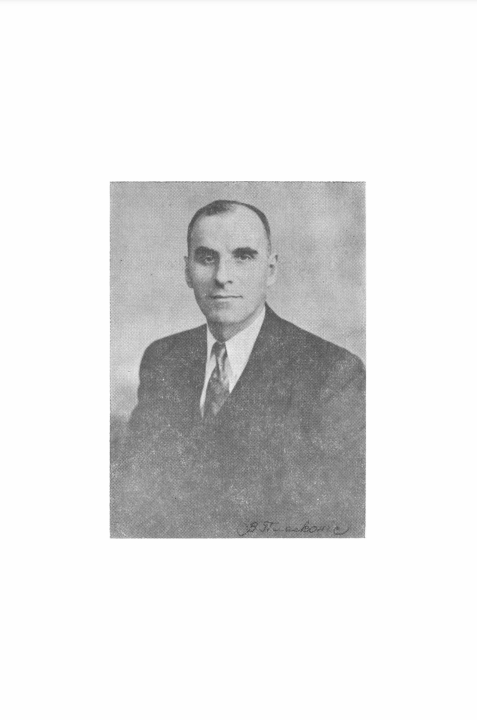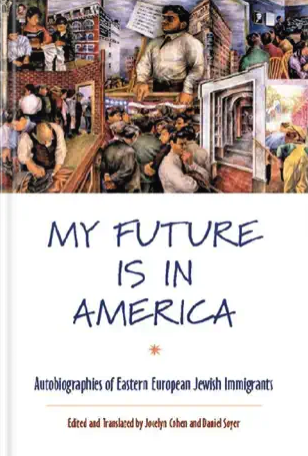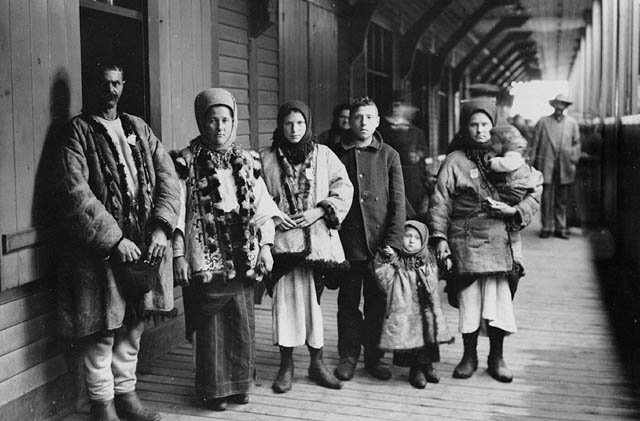My mummy is back home, when I’m in America
My mummy stayed back home, when I’m in America,
I work in New York, at a new factory,
I launch the machine, and the threads are sewing,
And my dear mum doesn’t know what I’m doing.
America is a piece of land, too grand,
If you don’t speak a language, you have it hard.
I’ve had it hard in the 12 weeks I’m here,
And I became all the way thinner.
I turned thin, and my clothes turned loose,
Then, the English hired me to do the job.
They promised a dollar and a half a day,
And mocked at me: “Work hard, you green clown, hey!”
When I heard them laughing, –
I don’t feel like work, ‘coz my hands turn numb!
My hands turn numb, and the tears dropping,
And my dear mum doesn’t know what I’m doing.
You raised me in your lap,
I’m not going to work in your fields.
You raised me like the only peach,
And sent me over the big water.
Over the big water, overseas away,
And now you are crying: “Oh, my dear baby!”





The song is built on the emigration-home dichotomy. It reflects the popular strategy of rural families who sent some of their children to emigration, so that they could help support the household with money transfers. In the song, a daughter who has a hard job in the factory and suffers as a “green”, that is, an inexperienced migrant, from not speaking the language, unfair wages, and difficult work conditions. Women were often migrant workers, but they worked in worse and less paid jobs. She reproaches the mother who sent her to earn money and does not know about the hardships of labour. The experience of young migrants who went through numerous trials, but at the same time gained independence, separated them from their families. Young people were no longer subject to the control of their parents and, thanks to distance and financial independence, they could make their own decisions.